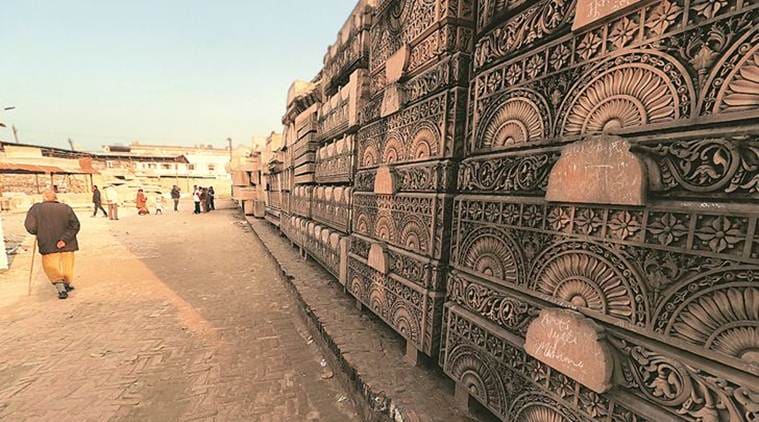A slim chance
Can the parties in Ayodhya dispute display the spirit of accommodation needed to make mediation a success?

A five-judge bench of the Supreme Court (SC), led by the Chief Justice of India (CJI), has passed the first major order in the sensitive matter of the ownership of the disputed site of the Babri mosque. It has referred the matter to a three-member mediation panel led by former SC judge F M I Kalifulla. The other members are controversial Art of Living founder and spiritual guru, Sri Sri Ravi Shankar and Madras High Court senior lawyer, Sriram Panchu. All the three members are Tamil-speakers. Faizabad, which is in the Hindi heartland and can be easily polarised in election season, will be the venue of mediation but its proceedings will be kept secret. The CJI and other judges wanted to make yet another sincere effort in finding an amicable and inclusive solution to the historical dispute. Therefore, in their order, they have said that “notwithstanding lack of consensus between the parties, we are of the view that an attempt be made to settle the dispute by mediation”.
A constitutional court in our legal system has to play a counter-majoritarian role. It is duty bound to protect the rights of even one individual. Public sentiments are thus irrelevant.
Unlike adjudication, mediation is not an adversarial process. While in judicial adjudication one party wins and another loses, at the end of mediation both the parties must feel fully satisfied with the compromise. Mediation should never be an alternative because one party refuses to accept a court verdict. Even the moderate Atal Bihari Vajpayee had said two years prior to the demolition of the mosque in 1992 that “no court can give a clear verdict on the issue and even if verdict was forthcoming, no government can implement it”.
While it is true that the legal issue is nothing more than a property dispute, the SC is right in saying that the case involves the sentiments of millions of Indians. If it is a question of “faith” for Hindus in terms of the site being the birthplace of Lord Ram, for Muslims, the central issue is about their “faith” in the Constitution and a fair and impartial judicial adjudication by the highest court of the land. Those who demolished not just a mosque but the only surviving piece of Sharqi architecture have not been punished in 27 years. The SC has not even stayed the recent ordinance giving the disputed land to one of the parties even though the ordinance is in violation of its own orders.
There are six major concerns with respect to the mediation order: First, mediation has been imposed by the Court on the parties which opposed it during arguments and have made similar statements after the order was passed. Second, the choice of mediators, particularly Sri Sri Ravi Shankar who is on record asking Muslims to give up their claim as a “goodwill gesture” and had even doubted the highest court’s competence in adjudicating this matter. In fact, he said in explicit terms that if the SC decided this matter, the losing party will have no option but to turn to extremism. Since the Court preferred to term the dispute a religious matter potentially impacting our politics, ideally a religious figure should have been kept away from the mediation process. Similarly, the mediation panel should not have been headed by a Muslim. It would have been better if an atheist, naturalist or follower of a third religion led the mediation process.
Third, though the Court has said that there is no legal impediment in referring this matter to mediation, it left the matter open. The parties opposing mediation did argue that as per the Supreme Court’s judgment in Afcons Infrastructure Ltd (2010), mediation cannot be done in a representative suit which involves public interest or the interest of large number of persons who are not represented in the court. Fourth, whether mediation can be done on behalf of deity is a grey area. The SC in the Afcons judgment said that matters involving rights of deities, minors and the mentally challenged should not be referred to mediation.










.png)




























No hay comentarios:
Publicar un comentario